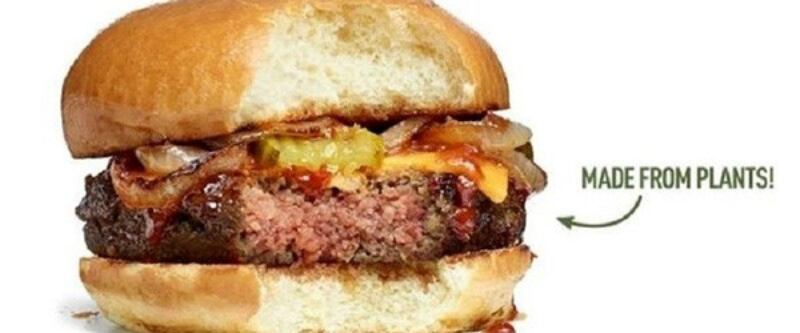The true value of plant-based meats from a nutritional point of view would be to replace non-lean or processed meat consumption in Australian diets, as currently this takes up one-third of Australians’ average daily meat consumption. This is despite them being classed as ‘discretionary foods’ that are not meant to provide nutrients for health.
“The ideal diet would be one where everyone eats a lot of whole foods and limited amounts of meat, but even if we’re looking at non-processed red meat, Australians are currently eating more than double the amounts recommended in the Australian dietary guidelines (a maximum of 65g a day), way too much processed meat, and also way too little vegetables,” dietitian Teri Lichtenstein and author of the report Plant-Based Meat: A Healthier Choice? told FoodNavigator-Asia.
“Decades of campaigning for consumers to eat more fruits and vegetables has not shifted consumer behaviour, so plant-based meats are a good way to meet consumers halfway where they’re at and support them on their journey towards healthier eating.
“Everyone knows what the ideal diet is like, but if it’s too far away and too difficult to follow, they’ll just give up, so what plant-based meats can do is to still allow Australians their backyard barbecues and sausages and so on with the taste and texture they are familiar with – but in a healthier format.”
In this sense, Lichtenstein stressed that plant-based meats are not being recommended as a staple food per se as they are still considered processed foods, but more a way to offer consumers, especially flexitarian consumers, a healthier choice in line with current behavioural preferences.
“The aim is if there’s a conventional and a plant-based sausage in front of them on the shelf, they will go for the healthier option with more health benefits, more fibre, less saturated fats and so on,” she said.
“I do not expect plant-based meat to ever totally replace conventional meat – but consumers today are expecting a wide variety of choices, and it could well be a situation where they choose conventional meat one day and plant-based meat the next, so there will always be place for both.”
Debunking plant-based meat myths
Plant-based meats have faced pushback in recent years over concerns such as high salt content, high additive content, and high levels of processing to produce these – but Lichtenstein emphasised that overall these were still healthier than their regular animal-meat counterparts.
“As mentioned, plant-based meat products are being recommended here as a replacement to conventional processed meat products whether these are sausages, burger patties, minced meat or otherwise – and here, the plant-based alternatives on average stand out in terms of nutritional value and sodium content,” she said.
“Select plant-based meat products have been shown to be high in sodium, [but] on average, these contain less or comparable sodium than conventional meat equivalents across most categories (except mince).
“Importantly, plant-based meats are not designated ‘carcinogenic to humans’ or ‘probably carcinogenic to humans’ as processed red meats and red meats are respectively designated by the World Health Organization.”
That said, she added that plant-based meat manufacturing firms could still improve on areas such as reducing less desirable nutrients and ingredients like sodium and additives – particularly as plant-based mince (346.4mg/100g) was still seen to contain on average almost seven times the sodium content of regular meat mince (51mg/100g).
“These firms could work with food technology innovators to do this – I’ve seen a firm working on ‘precision fermentation’ microbe technology to find a suitable alternative ingredients, and such food tech could also improve mouthfeel, texture and so on as well as reduce the need for salt,” she said.
“They could also work with those specialising in biofortification, which means to fortify the base ingredients, like grain and legumes crop, with nutrients such as iron and zinc.”
Plant-based diet concerns
Iron and zinc - along with vitamin B12 and a host of other micronutrients – have often emerged as concerns for pure plant-based vegan or vegetarian diets as animal protein has always been a more conventional source for these nutrients.
“A lot of these nutrients are not as bioavailable in plant-based sources as in animal-based sources, but can be enhanced via food processing in the body – e.g. if you’re looking to get your iron from spinach, we recommend drinking a glass of orange juice as the Vitamin C in there will help increase the iron absorption,” she said.
“Studies have also shown that the bodies of those on vegan or vegetarian diets adapt to increase absorption of some nutrients such as zinc.
“But for Vitamin B12, some plant-based dieters may need to take supplements, especially if they start to feel weak as it’s essential for energy production – but it is not advisable to put yourself on B12 supplements without seeking professional dietary advice.”
When asked whether such advice would be costly, especially for the regular consumer, she said that this very much depended on the situation.
“In Australia, medical advice is covered so the first step would be to go to the GP who might do a Vitamin B12 test and perhaps refer you to a dietitian, but from then on it might not be free. It really depends on the situation, but there is a lot of information out there that is readily available to help.”
We’ll be shining the spotlight on Plant-based Innovation in our Growth Asia 2020 interactive broadcast series. Register for free here.





